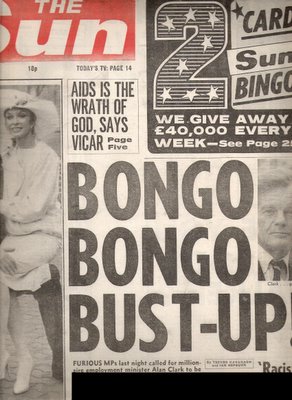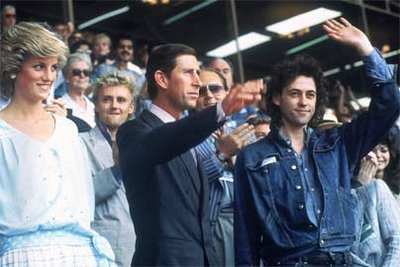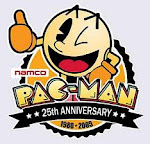 "Philips - simply years ahead"!
For several decades before the 1980s, a radio system of car phones existed that were wildly expensive. Eye-wateringly expensive. With the advent of the first cellular car phones in the early 1980s, car phones were still expensive. But the cellular system was infinitely cheaper than the radio version, and you could call directly, not through an operator as had been the case before. And electronic data transmissions were also possible! In the mid-1980s, the call was going up from dealers in this exciting new technology that car phones were not just for jet setters...
"Philips - simply years ahead"!
For several decades before the 1980s, a radio system of car phones existed that were wildly expensive. Eye-wateringly expensive. With the advent of the first cellular car phones in the early 1980s, car phones were still expensive. But the cellular system was infinitely cheaper than the radio version, and you could call directly, not through an operator as had been the case before. And electronic data transmissions were also possible! In the mid-1980s, the call was going up from dealers in this exciting new technology that car phones were not just for jet setters...
From the Daily Mail, 13/8/1985:
THE CELLULAR CAR 'PHONE. AVOID THE CONS. READ THE PROSE.
Car 'phones. They're no longer the privilege of the chosen few.
The ranks of present users - politicians, play-boys, the Adnan Khashoggis of this world, are being swollen by those of us with more modest callings.
Plumbers, small company directors, travelling sales persons, farmers, builders, photographers, vets, drain cleaning operatives, Mr. Family Man and his wife. In fact, anyone who finds a stationary phone useful, finds a mobile one invaluable.
Why do I need one?
The personal benefits must be obvious, but what about business?
Well, that's where the mobile 'phone really starts to work for you.
It totally frees your telephone life. You can start the day's calls (and receive them) the moment you get into the car.
Sure, you may still get stuck in a jam but at least you won't be worrying about the people you should be speaking to.
You'll be in touch.
Which, with the Phillips M7000 series, is somehing of an understatement.
It operates on the Vodafone system, feeding directly into the public telephone network, so you're in touch with the whole country.
Or any other for that matter.
What price communication?
Although our competition often avoids the issue, we're very much in favour of spelling out the cost.
Because with the Phillips M7000, what you get for your £1,499* (you can lease it if you prefer) is quite remarkable.
Simply, you get a 'phone that's designed for the British network, with more features than any other similarly priced 'phone on the market.
Including a helpful 'one bill' payment system.
This ensures every single bill, from your subscription to your shortest call, comes from the same source.
But what of the features?
To start, it has one of the highest number storage facilities. Without lifting the 'phone, you can dial up to 40 previously programmed numbers. Unauthorised use is prevented by a clever locking mode.
There's a 'scratch pad' allowing you to store a number during your conversation, which is then available for dialling when you hang up.
How did we manage before?
(You're talking to John who asks you to call the Edinburgh office. You don't know the number of the Edinburgh office. He tells you. You tap it in as you're chatting. When you hang up, you can automatically dial it.)
And that number is visible on a 16 digit display.
Forgotten the Company Secretary's home number? Press the 'scroll facility', it will remind you.
Forgotten to turn the machine off? After six hours it will do that too. So no flat batteries.
Forgotten the name of the car 'phone that provides more features, has a better service back-up, a 'one bill' payment system and isn't afraid to print the prose and the price?
It's Philips.
*Recommended Selling Price. Price correct at time of going to press.
END OF BLURB!
Clever advertising! After Michael Harrison/Ernie Wise made those historic first phone calls on 1 January 1985 (details here), cellular phones were definitely on the way in.
But, for the vast majority of us poor peasants, the good old pay phone remained the only way to make telephonic contact on the hoof for some years to come.
 The wonders of modern technology - a 1980s Motorola car phone.
The wonders of modern technology - a 1980s Motorola car phone.
 A newspaper advertisement from March 1986.
A newspaper advertisement from March 1986.
 Ford car phones - August 1986...
Ford car phones - August 1986...
From the beginning of September, all Ford dealers in Britain will be able to supply and install the new Ford Telecommunications cellular in-car telephone in any of the company's new cars or commercial vehicles.
The system is operated in conjunction with Carphone Group. Users of Ford Telecommunications equipment will be linked to either of the two major cellular networks in Britain.
The Ford Telecommunications system, which is manufactured by NovAtel in the United States, is specially adapted for operation in Britain. It permits direct dial calls to or from any telephone subscriber anywhere in the world.
Additional features include a "hands free" call facility, with a microphone located close to the sun visor and a speaker located in the front compartment of the vehicle for safer and more convenient use by drivers.
Further built-in features include last number redial, a memory bank with a capacity for 50 frequently used numbers, an Alpha facility for permitting other subscribers to be identified by name, a volume control, an electronic lock to prevent misuse of the apparatus, a 3-way conference link and a mute device for enabling private conversations to be held in the car while a call is in progress.
Electronic data transmissions are also possible employing telex, facsimile, videotex or computer formats.
"This is a totally new venture for Ford in Britain," said Mr Derek Dawes, Ford Director responsible for Parts Sales.
He added: "In-car telephones are no longer associated with the jet setters of this world. It is an efficient tool of work and I predict that many of our future customers will be the drivers of commercial vehicles, for whom instant communication at all times is a vital necessity."
 "Philips - simply years ahead"!
"Philips - simply years ahead"! The wonders of modern technology - a 1980s Motorola car phone.
The wonders of modern technology - a 1980s Motorola car phone. A newspaper advertisement from March 1986.
A newspaper advertisement from March 1986. Ford car phones - August 1986...
Ford car phones - August 1986...

































